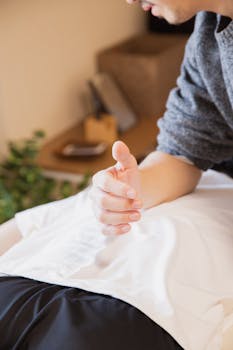Introduction: Embracing Holistic Recovery
The journey to overcoming addiction is as unique as the individuals who embark on it. While conventional treatments focus primarily on the physical aspects of addiction, holistic approaches aim to heal and harmonize the mind, body, and spirit. By addressing the whole person, holistic recovery provides a comprehensive path to healing and long-term sobriety.
Understanding Holistic Recovery
Holistic recovery extends beyond the typical scope of addiction treatment by integrating alternative therapies and approaches that nurture the entire being. This model views addiction as a multifaceted disorder, affecting not just the body but also mental and spiritual well-being. By balancing these elements, individuals can foster a deeper sense of healing and fulfillment.
1. Nurturing the Mind with Mindfulness and Meditation Techniques
Mindfulness practices are a cornerstone of holistic recovery. These techniques help individuals remain present, foster self-awareness, and manage cravings effectively.
- Mindfulness: By grounding oneself in the present moment, mindfulness reduces anxiety and stress, offering tools to navigate negative thought patterns and impulses.
- Meditation Techniques: Regular meditation provides mental clarity and emotional stability. Various methods, such as guided meditation, focused breathing, and mantra chanting, are common approaches to enhancing mental balance.
2. Strengthening the Body through Nutrition and Yoga Therapy
The body endures significant strain during addiction; therefore, nutrition and physical activity play key roles in restoring health.
- Nutrition in Recovery: A balanced diet can repair physical damage, bolster the immune system, and boost mood. Nutrient-rich foods with vitamins, minerals, and antioxidants help rebuild physical health and mental resilience.
- Yoga Therapy: Yoga combines physical postures with breathwork and meditation, promoting flexibility, strength, and mental clarity. This practice is particularly beneficial in releasing stress and reconnecting the individual with their body.
3. Invigorating the Spirit through Spiritual Healing
Addressing the spirit is a crucial component of holistic recovery, as it fills the void left by addiction and fosters a sense of purpose and connection.
- Spiritual Healing: Encourages individuals to explore their values, beliefs, and connections to a higher power or guiding principle. This discovery enhances personal growth and emotional wellness.
- Practices like Reiki and Energy Healing: Such therapies clear blockages and promote positive energy flow, supporting emotional and spiritual recovery.
4. Alternative Therapies: Exploring Creative and Eastern Approaches
Several alternative therapies complement traditional treatments, offering tailored support for recovery.
- Acupuncture for Addiction: With origins in traditional Chinese medicine, acupuncture alleviates withdrawal symptoms and improves emotional balance by stimulating points in the body.
- Art and Music Therapy: Creative expression fosters communication and emotional release, providing insight into personal struggles and triumphs.
- Nature and Adventure Therapy: Time spent outdoors combined with structured activities enhances emotional healing and reinforces positive behaviors.
Conclusion: A Balanced Path to Recovery
Holistic addiction recovery is not solely about abstaining from substances — it’s about creating a balanced and fulfilling life. Individuals who embrace this multifaceted approach develop new coping mechanisms, healthier relationships, and a profound sense of self-awareness. By nurturing the mind, body, and spirit, holistic recovery offers a sustainable path to breaking free from the grips of addiction and achieving long-lasting well-being. As society continues to reshape its understanding of addiction treatment, holistic practices increasingly demonstrate their transformative potential in fostering recovery and rejuvenation.

